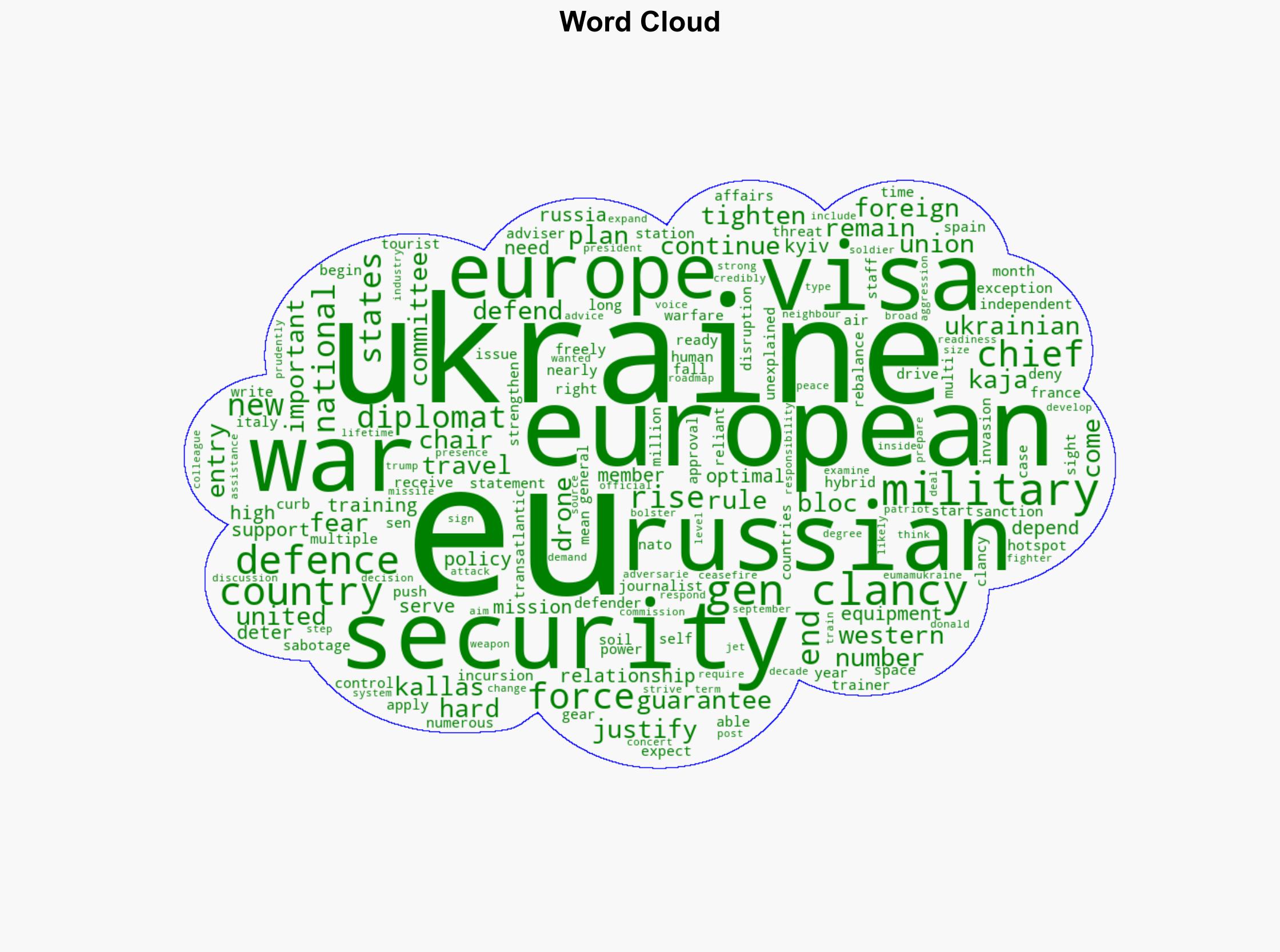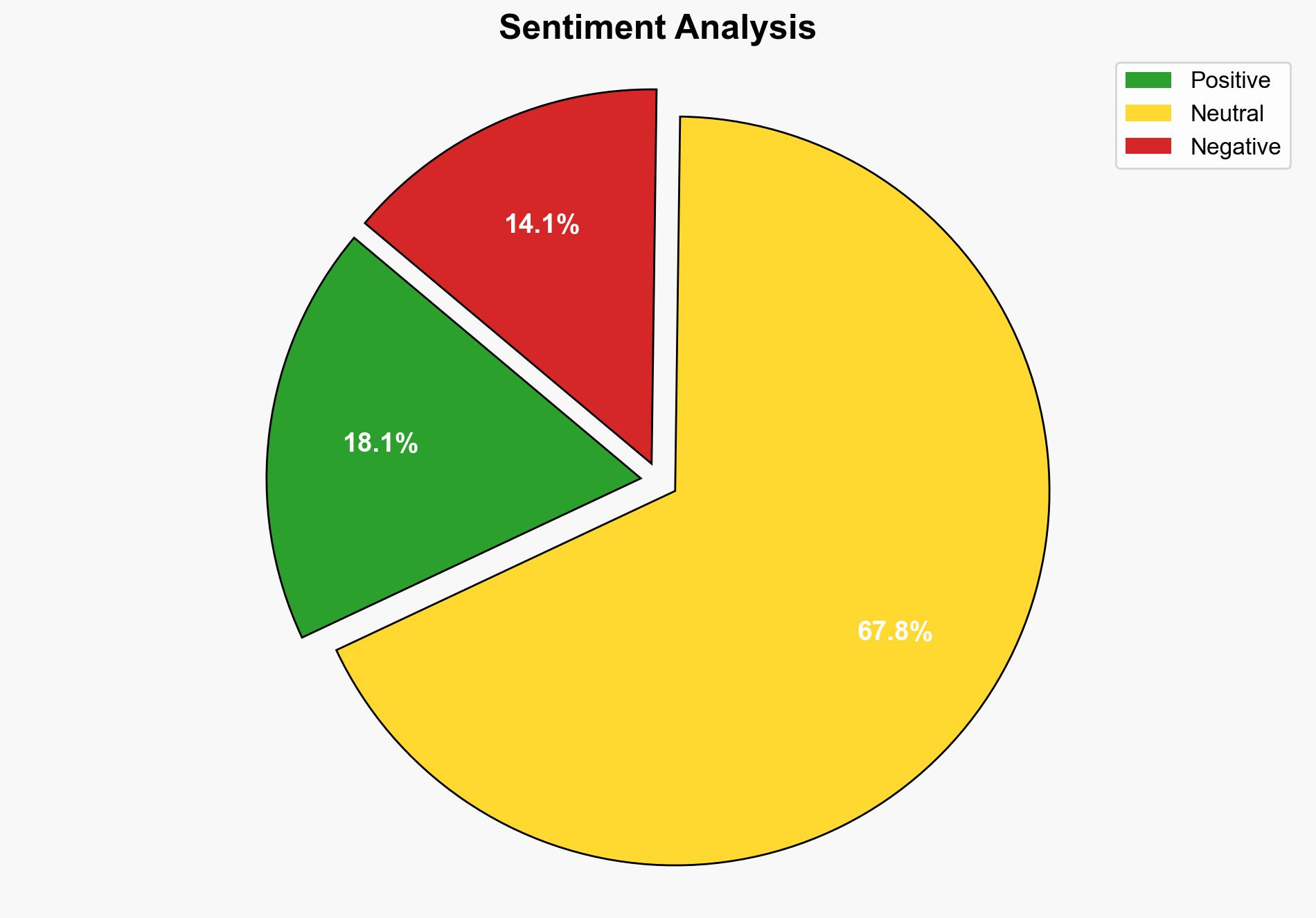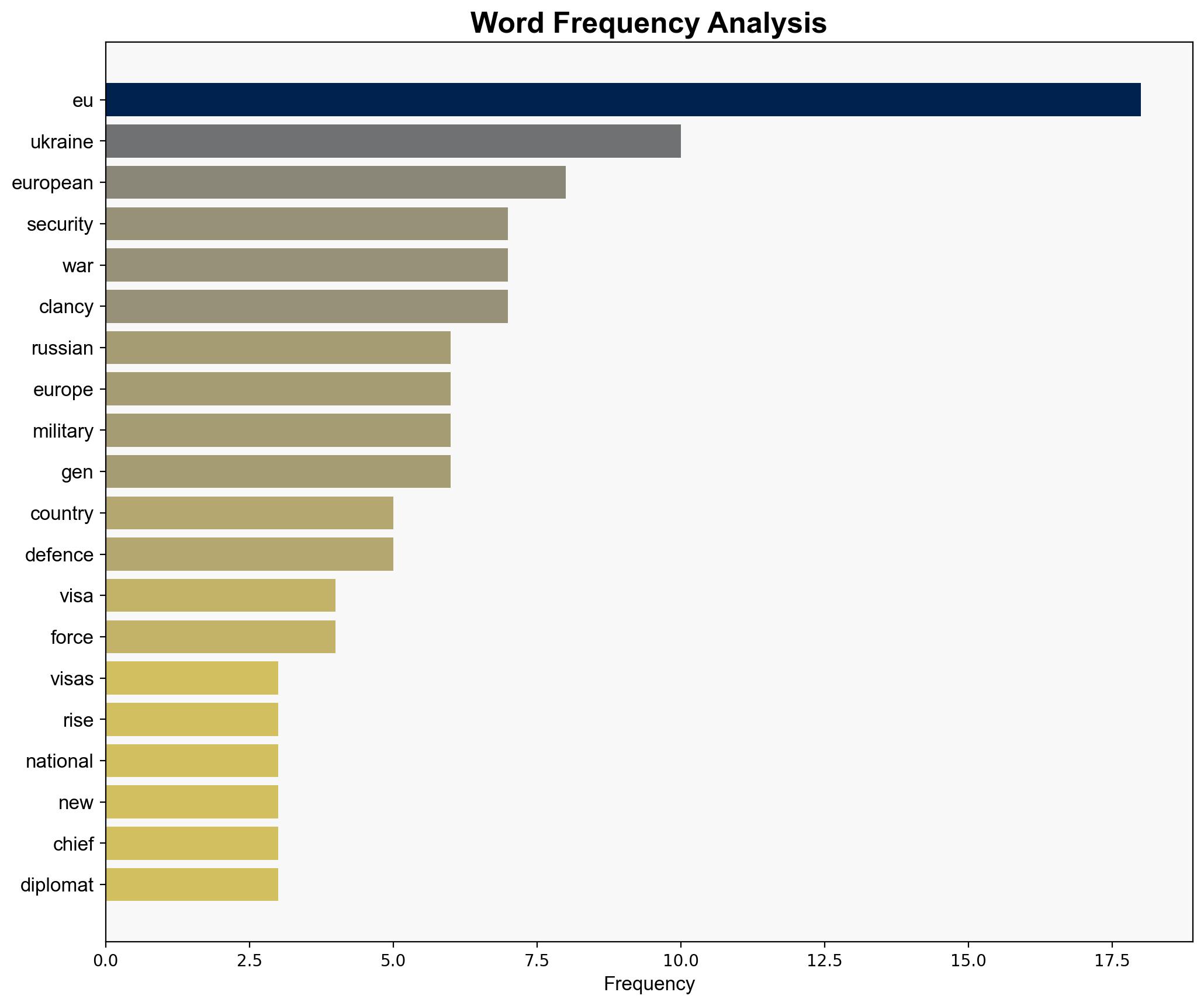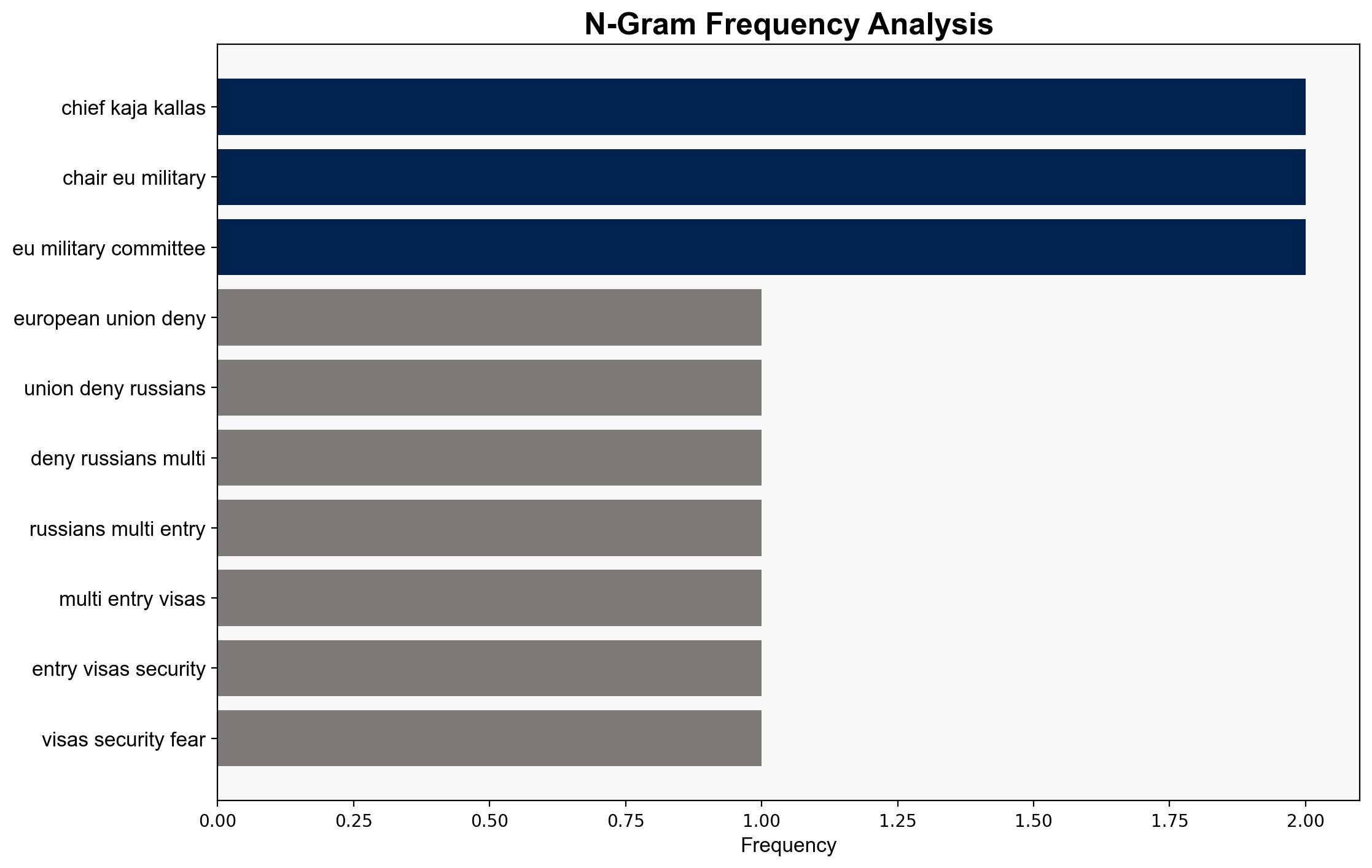EU restricts visas for Russian nationals over Ukraine war – RTE
Published on: 2025-11-07
Intelligence Report: EU restricts visas for Russian nationals over Ukraine war – RTE
1. BLUF (Bottom Line Up Front)
The European Union’s decision to restrict visas for Russian nationals is a strategic move aimed at mitigating perceived security threats amidst ongoing tensions due to the Ukraine conflict. The most supported hypothesis suggests that these restrictions are primarily a response to increased hybrid warfare threats from Russia. Confidence level: Moderate. Recommended action: Enhance intelligence sharing among EU member states to monitor and respond to potential Russian retaliatory measures.
2. Competing Hypotheses
Hypothesis 1: The EU’s visa restrictions are a direct response to increased security threats, including hybrid warfare tactics by Russia, such as drone incursions and sabotage activities on European soil.
Hypothesis 2: The visa restrictions are primarily a political maneuver to signal EU solidarity and support for Ukraine, aiming to pressure Russia diplomatically without escalating military tensions.
Using Analysis of Competing Hypotheses (ACH), Hypothesis 1 is better supported due to the EU’s explicit mention of security concerns and hybrid warfare threats. The presence of unexplained drone sightings and increased control over Russian diplomats further corroborates this hypothesis.
3. Key Assumptions and Red Flags
Assumptions include the belief that visa restrictions will effectively mitigate security threats and that Russia will not escalate military actions in response. A red flag is the lack of detailed evidence linking specific incidents to Russian state actions, which could indicate potential bias or misinterpretation of intelligence.
4. Implications and Strategic Risks
The visa restrictions could lead to increased diplomatic tensions and potential retaliatory measures by Russia, such as cyberattacks or further hybrid warfare tactics. Economically, the restrictions may impact EU tourism sectors reliant on Russian visitors. Geopolitically, this move could strain EU-Russia relations further, complicating future diplomatic negotiations.
5. Recommendations and Outlook
- Enhance intelligence collaboration within the EU to monitor potential retaliatory actions by Russia.
- Prepare contingency plans for cyber and hybrid warfare threats.
- Scenario-based projections:
- Best Case: Russia de-escalates hybrid warfare activities, leading to improved security and diplomatic conditions.
- Worst Case: Russia retaliates with increased cyberattacks and military posturing, escalating regional tensions.
- Most Likely: Continued low-level hybrid threats with periodic diplomatic engagements.
6. Key Individuals and Entities
Kaja Kallas, Gen. Sen Clancy
7. Thematic Tags
national security threats, cybersecurity, counter-terrorism, regional focus





